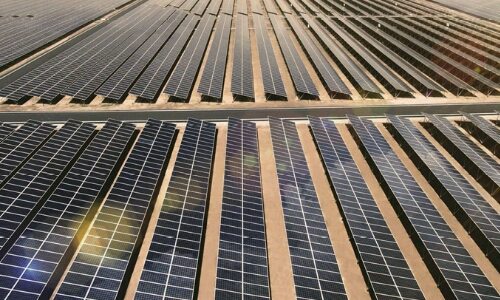The Abu Dhabi Fund for Development (ADFD) has said that its investments into sustainable/renewable energy projects contribute 2,584MW of renewable energy across several countries, in line with the objectives of the United Nations’ Sustainable Development Goals (SDGs).
Discussing its investments, the firm says that it has contributed to financing about $737m in renewable energy projects through joint financing agreements with the governments of several developing countries. The remaining funds were allocated through partnerships including the seven-cycle $350m Irena/ADFD Project Facility, the $50m UAE-Caribbean Renewable Energy Fund (UAE-CREF), in addition to the $50m UAE-Pacific Partnership Fund (UAE-PPF).
“ADFD believes in the vital role the renewable energy sector plays in attaining sustainable development goals in developing countries. This important sector stimulates economic growth, creates employment opportunities, drives innovation, supports the advancement of other key sectors and optimises the use of natural resources – all crucial factors in improving people’s lives,” said ADFD Director-General Mohammed Saif Al Suwaidi.
In Jordan the ADFD contributed $150m to fund the Sheikh Zayed Solar Power Complex, in line with the government’s objective of generating 20% of energy from renewables by early-2020. The project comprises 328,320 photovoltaic panels that will produce 227GWh of solar power annually over a period of 20 years, enough to illuminate about 50,000 homes. The project created approximately 1,000 jobs during the construction phase and is set to provide 30 permanent jobs.
In Eastern Sudan, the ADFD allocated a $90m concessionary loan and contributed to the construction of the Upper Atbara and Setit Dam Complex. Additionally, in north Sudan, it provided $200m for the construction of the Merowe Dam. The project is said to support the country’s power deficit by producing 1,250MW of electricity, which will benefit over 30m people.
The ADFD allocated a $33m concessionary loan for the development of a waste-to-energy facility in the Sharjah. The project will treat more than 300,000 tonnes of municipal solid waste (MSW) each year and will have the capacity to generate 30MW of energy. Due for completion by early 2021, the facility aims to help attain Sharjah’s zero-waste-to-landfill target and the UAE’s objective of diverting 75% of its municipal solid waste from landfills by 2021.
In the Republic of Seychelles, ADFD allocated $28m to produce clean electricity using wind turbine technology in place of diesel-powered plants across the island of Mahé.
“Over the past four-and-a-half decades, ADFD has financed projects in the renewable energy sector that meet the national priorities of developing countries. Through securing sources of energy, these projects have enabled the production of low-cost, affordable electricity and improved standards of living in these countries,” Suwaidi concluded.

